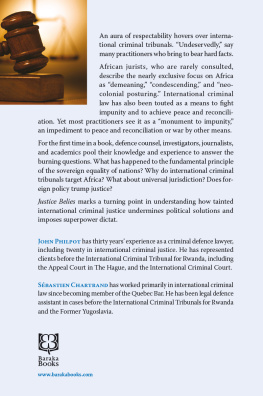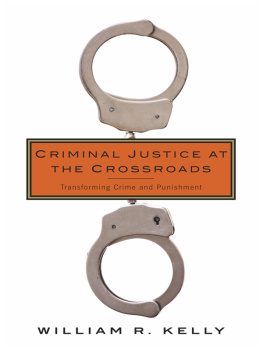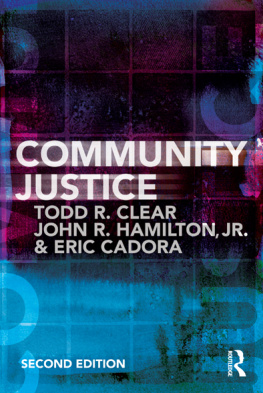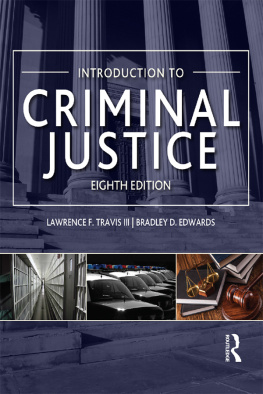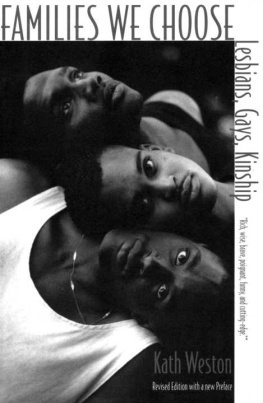To my father, Paul Buhrke and the memory of my mother, Marguerite Buhrke, and to lesbians, gay men, and bisexuals everywhere for whom homophobia makes their workplaces unsafe
Preface
W ith a handful of names, several boxes of blank cassette tapes, a concept for a book, and a megadose of optimism, I began a journey that took me to the four corners of the country, and places in between. It took me to small towns and large metropolitan areas. It took me into the hearts and souls of a group of courageous individualspeople who were willing to share their triumphs, their sadness, and their everyday lives with me.
I sought answers to such questions as:
What are the experiences of lesbians and gay men working in the criminal justice system?
What is it like to be an openly gay criminal justice worker in such places as rural West Virginia, North Dakota, or Dallas, Texas?
What is it like being a gay police officer in need of backup when no one comes to the aid of the fag?
What makes some openly gay and lesbian criminal justice workers flourish and grow in their jobs while others falter and stumble?
What is it like to be an outsider in a traditionally heterosexual, White, male-dominated, able-bodied, macho profession?
What is it like to be forced to choose between self-disclosure and safety?
I learned the answers to these questions and many others I had not even imagined. I met and spoke with criminal justice professionals across the country and conducted in-depth interviews. The people I met were amazing; the experiences they shared were poignant and riveting.
Rather than distill all the information I gathered into small bits and pieces to present to the reader, I wanted to convey not only the incidents that occurred to these people, but their characters and personalitiestheir essence, if you willas well. In sharing our humanity we can see that our similarities transcend many of our differences, and that our differences need not be feared.
Approach
Over the course of a two year period beginning in June of 1993, I interviewed seventy-two lesbians and gay men employed in various criminal justice positions. I was unable to interview any self-identified bisexual criminal justice personnel, and therefore any conclusions based on these stories may not relate to their experiences. The stories presented here do not represent a random sample of lesbian and gay criminal justice professionalsthere's no way they could. What I attempted to do was discover and present the diversity of experience rather than the average experience.
I gathered my sample in two ways: about 10 percent came via public notices through the internet and 90 precent were derived by snowball samplingthe people I talked with and interviewed provided me with the names and phone numbers of other contacts. The data is almost entirely qualitative, coming from semi-structured interviews which lasted anywhere from an hour to four and a half hours. Each interview consisted of three parts. The first section focused on developmental historywhen and how did they know they wanted to enter criminal justice, and how did being lesbian or gay affect the decision to pursue a criminal justice career. The second section focused on experiences as lesbians or gay men in criminal justicewhat is it like to be lesbian or gay in criminal justice; if they weren't out, how did they manage to keep closeted; and if they were out, how did they come out, and what were the reactions of fellow officers. The third section focused on experiences as law enforcement personnel in the lesbian and gay community.
Most of those interviewed gave permission to be fully identified, while a few wished for (and received) varying degrees of anonymity. The stories recounted here represent twenty-one males and twenty-two females from sixteen states, the District of Columbia, and Canada. Thirty-one are White, U.S. born; five are African-American; two are Hispanic; two are White, U.S. immigrants; one is Native American; and one is Canadian. One has a disability. Ages range from twenty-seven to fifty-two, and they have spent anywhere from less than a year to twenty years in criminal justice. Education levels range from high school level to graduate work. Many have bachelor's degrees, several have master's, one has a Ph.D., and a few have law degrees. One was in medical school and another was in the last year of coursework for a Ph.D. when they both dropped out to become cops. Thirty-three departments are represented, ranging in size from the more than eight thousand officers in the Los Angeles Police Department to the eight officer department in Pineville, WV. Twenty-four are with police departments, five are with sheriff's departments, four are with state departments of corrections, four are with campus police and security departments, three are judges, one is a state trooper, one is a deputy district attorney, and one is a former FBI agent. There were nine sergeants, one lieutenant, and one chief. Most of them were still on the job when I interviewed them, but one had retired, two had been fired for being gay, one had resigned, and three were on medical leave.
Each interview was audiotaped. After transcribing the tapes, I edited the transcripts for clarity, redundancy, and grammar. Where possible, each person reviewed his or her own story, corrected any errors, and approved the editing. The stories were organized around the functions of the criminal justice system: apprehension, detention, adjudication, and incarceration of those who break the law, as well as special forces. Because the functions of detention and incarceration are so similar, the categories were collapsed.
The words and the stories are theirs. Each story has a rhythm and a melody of its own. Individual perspectives corroborate as well as contradict one another, yet collectively they provide a view of the world of criminal justice and its attitudes regarding its lesbian and gay members.
Acknowledgments
It has been said so often that it seems cliche: No project of this magnitude could have been completed without the help of countless others. Yet it is unalterably true. First and foremost, I am grateful to those individuals who participated in this project. Without their generosity of time and spirit, this book would not exist. Nor would it have been possible had people not opened their address books and connected me with potential participants: There are no telephone directories of lesbian and gay criminal justice workers. I apologize to those whose words do not appear here. There were many more stories to tell than space permitted. Many old friends, and some new friends, fed and sheltered me during my travels. They patiently listened to my tales, soothed my frustrations, and propped me up when I had conducted one too many interviews for the day. This book is as much theirs as it is mine.


